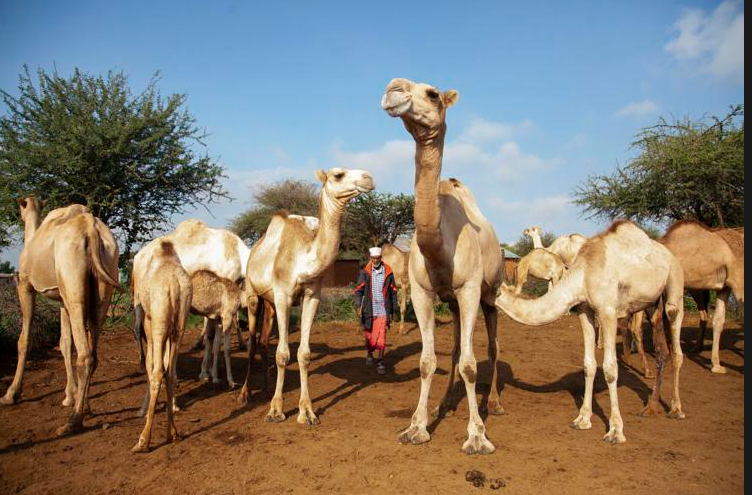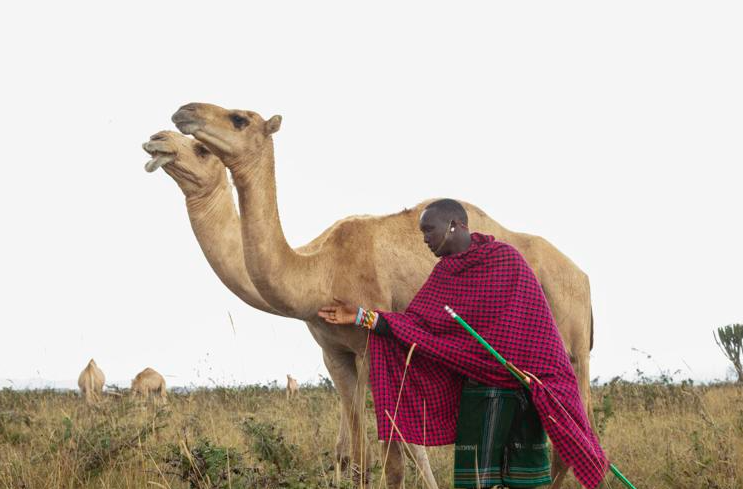 In response to persistent drought conditions that have ravaged much of Kenya, farmers in the arid and semi-arid regions are increasingly turning to camels as a climate-resilient livestock option. Camels, known for their ability to thrive in harsh desert environments, are becoming a vital source of income and survival for farmers battling the impacts of climate change.
In response to persistent drought conditions that have ravaged much of Kenya, farmers in the arid and semi-arid regions are increasingly turning to camels as a climate-resilient livestock option. Camels, known for their ability to thrive in harsh desert environments, are becoming a vital source of income and survival for farmers battling the impacts of climate change.
With traditional livestock such as cattle, goats, and sheep struggling to survive due to water shortages and limited grazing pastures, camels are proving to be a more sustainable choice. Unlike other animals, camels can go for extended periods without water, feed on sparse vegetation, and still provide milk and meat, making them a valuable resource in the face of the worsening droughts.
In Isiolo, Garissa, and other drought-prone regions of northern Kenya, camel farming has seen a significant increase. Farmers are investing in camels, which, though initially more expensive to acquire, offer better long-term returns and stability. Camel milk, in particular, is gaining popularity for its nutritional value and economic potential. It is now being sold in urban markets and exported to neighboring countries, offering farmers a new income stream.
I used to rear cattle, but the droughts made it impossible to sustain them. Since I switched to camels, I’ve seen a huge improvement. They require less water, and their milk is in high demand, said Ali Yusuf, a farmer in Wajir County.
 The Kenyan government and development organizations have also recognized the potential of camels in combating food insecurity. Several initiatives have been launched to provide training and support for camel husbandry, including veterinary services and market access for camel products.
The Kenyan government and development organizations have also recognized the potential of camels in combating food insecurity. Several initiatives have been launched to provide training and support for camel husbandry, including veterinary services and market access for camel products.
Dr. Hussein Maalim, an agricultural expert, noted, Camels are a climate-adaptive solution. They not only provide resilience against drought but also offer farmers a lifeline in these increasingly unpredictable times.
As the effects of climate change continue to challenge traditional farming practices, the shift toward camels represents a broader transformation in Kenya’s agricultural landscape. This adaptation highlights the innovative ways in which farmers are learning to cope with environmental stresses while securing their livelihoods.
With the demand for camel products rising, including camel milk, which is touted for its health benefits, the future of camel farming looks promising. It not only provides an answer to the immediate challenges of drought but also offers long-term economic potential for Kenya’s agricultural sector.
As more farmers invest in camels, the hope is that this shift will lead to greater food security and resilience against climate change, offering a sustainable path forward for communities in Kenya’s most vulnerable regions.
Ennywealth


